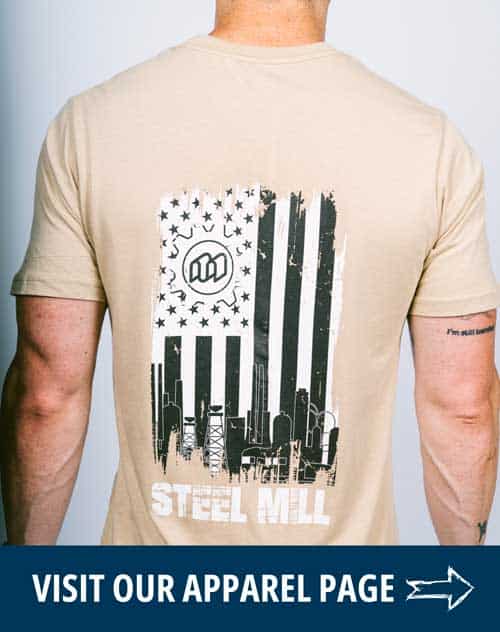Steel quality is not uniform across all materials, making rigorous certification essential. Whether you’re constructing a skyscraper, manufacturing precision components, or developing infrastructure projects, using steel that meets stringent industry standards is crucial. This is where steel material certification plays a vital role.
Material certifications provide proof that the steel you’re purchasing meets specific mechanical and chemical properties—giving you confidence in its quality and performance.
In this article, we’ll explore the different types of material certifications, including Mill Test Reports (MTRs), and explain why they are essential for ensuring structural integrity, compliance, and quality control in steel distribution.
What Is a Material Certification?
A material certification is an official document that verifies the composition, strength, and mechanical properties of a steel product. This certification ensures that the steel has been manufactured in accordance with industry standards and meets the necessary requirements for strength, durability, and safety.
In steel distribution, these certifications act as a quality assurance tool, allowing manufacturers, builders, and engineers to trust that the material they receive meets the required specifications. Without proper certification, there is no guarantee that the steel will perform as expected in demanding applications.
Types of Material Certifications in the Steel Industry
Steel material certifications come in different forms, with the most widely recognized being Mill Test Reports (MTRs). However, other certifications align with various industry standards and compliance requirements.
Mill Test Report (MTR)
One of the most critical certifications in steel distribution is the Mill Test Report (MTR). Also known as a Material Test Certificate (MTC) or Material Test Report (MTR), this document is issued by the steel mill and provides a detailed breakdown of the steel’s properties.
An MTR typically includes:
- Chemical Composition: The percentages of carbon, manganese, sulfur, phosphorus, and other elements in the steel.
- Mechanical Properties: Yield strength, tensile strength, elongation, and hardness.
- Material Heat Number: A unique identifier assigned to a batch of steel during production, allowing full traceability from the raw material stage to the finished product
- Heat Treatment Details: If applicable, the report may include information on heat treatment techniques including annealing, case hardening, precipitation strengthening, tempering, carburizing, normalizing, and quenching.
An MTR acts as a passport for steel, proving that it has been tested and meets industry standards before being distributed to customers.
Industry-Specific Certifications
Beyond MTRs, steel materials must also comply with industry-specific standards. Some of the most recognized certifications include:
- ASTM International (formerly the American Society for Testing and Materials): Establishes technical standards for various steel grades.
- ISO (International Organization for Standardization): Defines global quality and safety requirements.
- EN (European Standards): Developed by the European Committee for Standardization (CEN), the EN provides guidelines for steel used in construction and manufacturing.
- ASME (American Society of Mechanical Engineers): Sets material standards for boilers, pressure vessels, and piping.
These certifications reinforce quality assurance and ensure that steel materials perform consistently and reliably across industries.
Why Material Certification Matters for Steel Distribution
Having steel that meets certification standards is about more than just paperwork. It’s a fundamental requirement for safety, reliability, and compliance.
Here’s why steel material certifications are important:
Ensuring Structural Integrity
Material certifications guarantee that steel products meet the necessary strength and durability for their intended applications. In industries like construction, automotive, aerospace, and energy, using non-certified steel could lead to structural failures, safety hazards, and costly recalls.
When engineers and builders choose certified steel, they reduce the risk of catastrophic failures and ensure that their projects remain safe and long-lasting.
Compliance with Industry Standards
Regulatory bodies enforce strict guidelines to maintain steel quality and safety. Using certified steel helps companies comply with national and international laws, avoiding penalties and legal issues.
For example, in the construction industry, steel used in buildings and bridges must meet ASTM standards to withstand environmental conditions. Similarly, manufacturers in the automotive sector rely on ISO-certified steel to produce high-performance vehicles.
Customer Confidence and Traceability
For buyers, material certification provides peace of mind that the steel they’re purchasing is authentic, high-quality, and traceable. Traceability is particularly important in industries like medical, aerospace, and defense, where precise material composition is essential.
By working with a certified steel supplier, customers ensure that they receive consistent, reliable products that meet their exact needs.
Choosing a Certified Steel Supplier
Not all steel distributors prioritize certification, so it’s important to vet suppliers before making a purchase. Here’s what to look for when selecting a certified steel supplier:
- Availability of MTRs: A reputable distributor should provide Mill Test Reports for their steel products, especially if required for end-use application.
- Adherence to Industry Standards: Ensure that the supplier meets ASTM, ISO, EN, or ASME certification requirements.
- Experience and Reputation: Look for a steel supplier with a proven track record of delivering high-quality, certified steel.
- Customer Support and Transparency: A reliable supplier should be willing to answer questions and provide full traceability of materials.
At Mainline Metals, we understand the importance of material certification in steel distribution. Our steel products come with detailed MTRs, ensuring that you receive high-quality, compliant materials for your projects.
Ensuring Quality and Compliance in Steel Distribution
In the steel industry, quality matters—and material certification is the key to ensuring that you receive reliable, high-performance steel for your applications. Certifications like Mill Test Reports (MTRs) verify the mechanical and chemical properties of steel, guaranteeing structural integrity, compliance, and customer confidence.
When sourcing steel, always choose a certified steel supplier that provides full documentation and adheres to industry standards. At Mainline Metals, we take pride in delivering top-quality certified steel, giving you peace of mind and performance you can trust.
If you need a trusted steel supplier, contact Mainline Metals today to purchase certified steel that meets your exact specifications.
← Back To News
